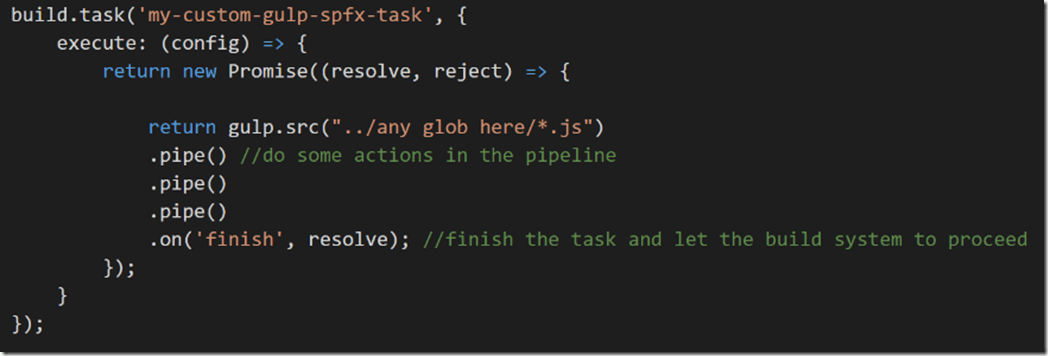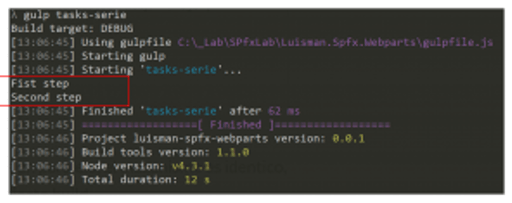
To add a new custom Gulp task, we must go through the SPFx build system, which is defined in the package “@microsoft/sp-build-web”

The build object allows us to call a function “task” and set the definition of our task. It would be something similar to this:

However, imagine that we just want to execute a couple of Tasks, but sequentially. Then, we must use the function “serial” of the build object. The following code snippet runs the tasks “task-1” and “task-2” together and sequentially:
var task1 = build.task("task-1", {
execute: (config) => {
console.log("Fist step");
return new Promise((resolve, reject) => {
const deployFolder = require('./config/prepare-deploy.json');
const folderLocation = `./${deployFolder.deployCdnPath}/**/*.js`;
return gulp.src(folderLocation)
.on('finish', resolve);
});
}
});
var task2 = build.task("task-2", {
execute: (config) => {
console.log("Second step");
return new Promise((resolve, reject) => {
const deployFolder = require('./config/prepare-deploy.json');
const folderLocation = `./${deployFolder.deployCdnPath}/**/*.js`;
return gulp.src(folderLocation)
.on('finish', resolve);
});
}
});
var tasksSerie = build.serial([task1, task2]);
build.task("tasks-serie", serie);
If we run the task, we will see the expected result:

If we want to run the tasks in parallel, the mechanics are the same, but using the function “parallel” of the build.object.
Hope this helps!







